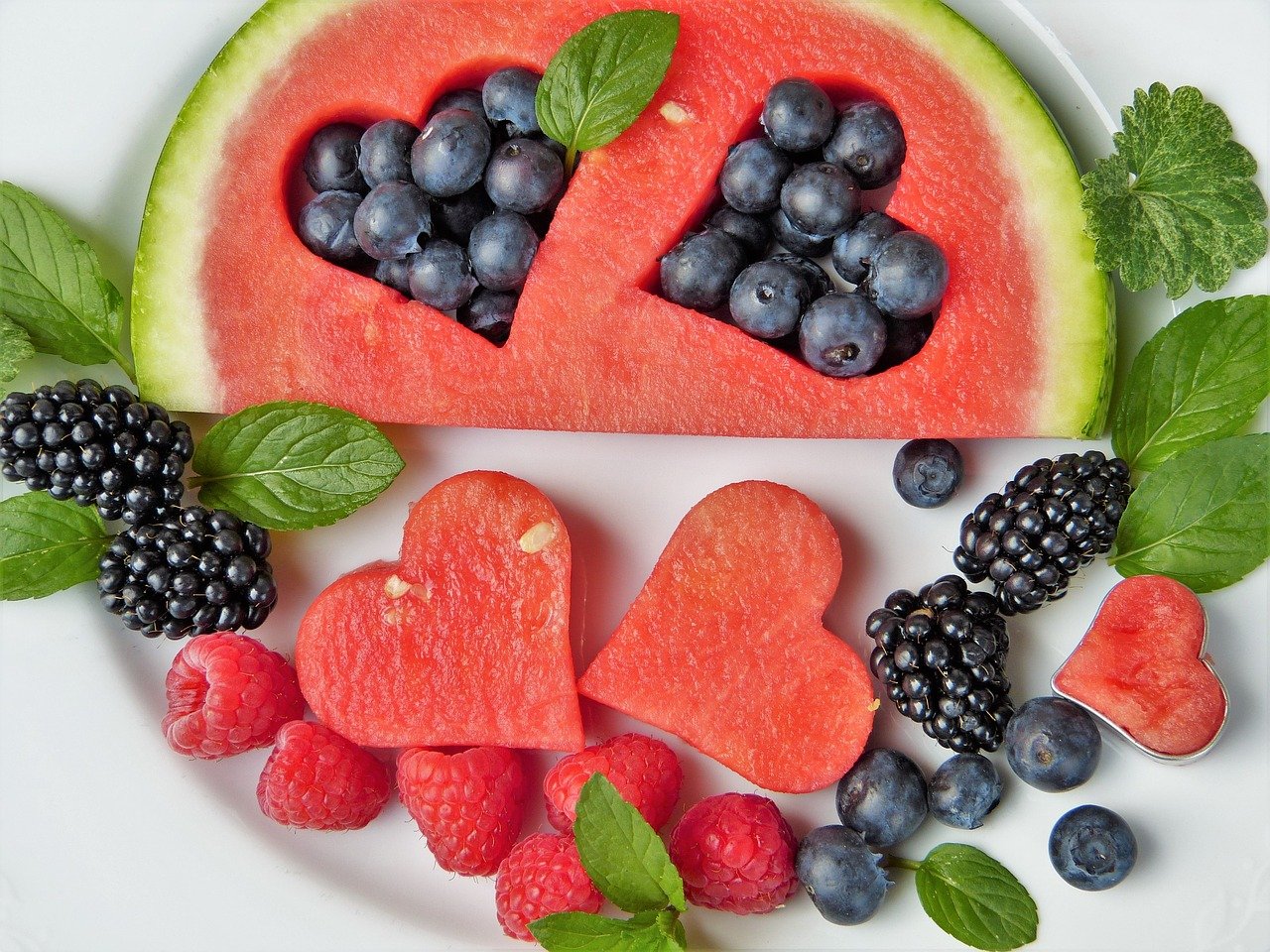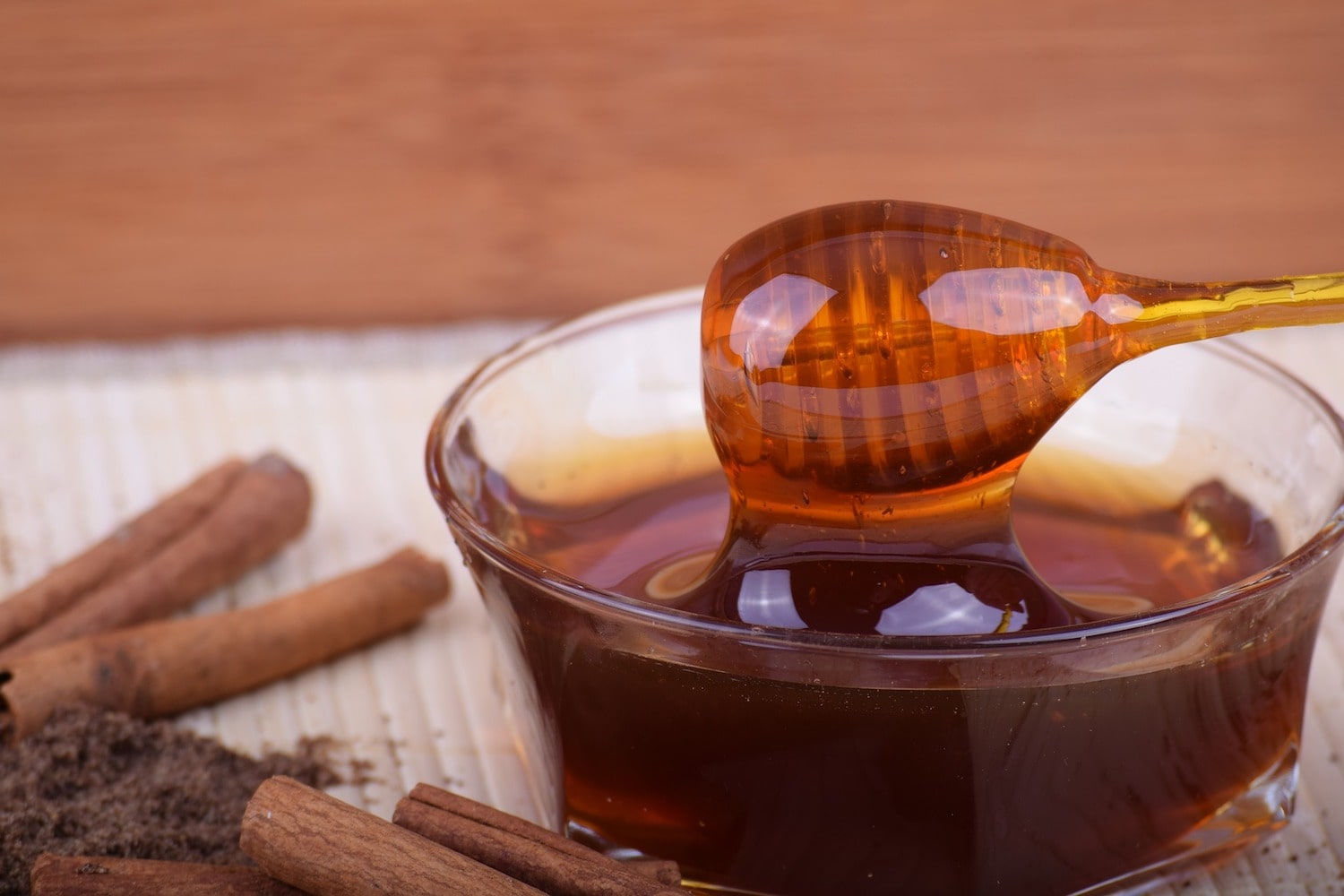“You only live once”, as they say. Given the one life that we’ve been provided, how exactly can we make the most out of it?
While we can’t technically live forever, taking great care of your mind and body is the only way you can naturally extend and improve the quality of our life. It’s one way of being grateful of the life you were given, which is by providing your body with the best nutrition you can possibly get.
Plenty of studies have shown that the food we eat, and not our genes, is a major factor of our life expectancy. For instance, following the Mediterranean diet – which is considered as one of the healthiest diets in the world – is known to result in the longest lifespans in the world, even if those who practice it aren’t native to the region.[1]
This is because the Mediterranean diet is mostly composed of fresh and nutrient dense foods, and less of the processed food that we’ve become increasingly accustomed to in this modern age. These nutrient-dense foods provide more energy, strengthens immunity, and reduces your risk of developing chronic diseases – all of which contribute to a healthier and longer life.
If you’re looking to live your life as long and healthy as possible, here the best foods you should incorporate in your diet, as they are scientifically proven to improve longevity and vitality.[2,3]
- Cruciferous Vegetables
Cruciferous vegetables are among the healthiest group of vegetables on earth, such as kale, cabbage, broccoli, bok choy, spinach, and Brussel sprouts.

This is because cruciferous vegetables were found to have the special ability of activating a powerful transcription factor, called Nrf2, which stimulates the production of antioxidant enzymes in every cell of our body. These antioxidants protect the body against inflammation and oxidative stress, which slows down cellular damage.[4]
In fact, several studies have linked the consumption of cruciferous vegetables with a lower risk of developing certain types of cancers and cardiovascular diseases. This was observed among Asian populations, which is known to consume a large amount of cruciferous vegetables.[5]
Cruciferous vegetables are also common and easy to include in many types of diets. They can be enjoyed raw, cooked, or even juiced (such as the popular kale smoothies).
- Nuts
Despite how small and simple they appear, nuts pack a lot of nutrients for every calorie it provides.
Consuming nuts regularly can help reduce your risk of chronic diseases such as cardiovascular diseases, diabetes, and certain types of cancers. This is because nuts are a great plant source of heart healthy fats, fiber, antioxidants, minerals, and phytosterols. In addition, nuts have a low glycemic index, which means they won’t cause spiked in your blood sugar levels.

Several studies were also able to find a link between nut consumption and longer lifespans. For instance, an analysis by researchers from the Harvard Public School of Health found that those who ate approximately 18g of nuts daily had a 20 percent reduced risk of death caused by cancer, heart disease, and respiratory disease. This analysis was based on data that was compiled over 30 years, which detailed the eating habits of 76,000 women and 42,000 men.[6]
Instead of munching on potato chips when you’re feeling slightly hungry, grab a bag of trail mix for a healthier and more fulfilling snack time.
- Seeds
Similar to nuts, seeds pack a lot of heart-healthy fats, antioxidants, fibers, minerals, and vitamins. But compared to nuts, seeds contain more proteins and trace minerals that are hard to find in most food sources.

The fiber and omega-3 fatty acids that are abundant in seeds are known to reduce bad cholesterol levels, along with other risk factors of heart disease.[7]
Chia seeds were also found to reduce blood sugar levels. For instance, one study found that both whole and ground chia seeds are effective in lowering blood sugar immediately after a meal. This lowers the risk of diabetes.[8]
Other examples of seeds you can add to your diet are flaxseed, sesame seeds, sunflower seeds, and pumpkin seeds.
- Berries
Not only do berries make delicious toppings for dessert, but they’re packed with beneficial antioxidants and vitamins that will enrich your overall health.

Berries are renowned for their high antioxidant content, which protects your cells from the damage caused by free radicals. This effectively lowers your risk of developing chronic diseases. These antioxidants are also known to fight against long-term inflammation, which often comes from stress, sedentary lifestyles, and an unhealthy diet.[9]
While you may typically encounter them on desserts, the high sugar content is something you should probably stay away from. Instead, the best way to eat berries is to eat them raw, use them as toppings for oatmeal or yogurt bowls, or make fresh smoothies out of them.
- Beans
According to Dan Buettner, a National Geographic Fellow and longevity expert, eating a cup of beans per day can add an extra four years to your life.[10]
In many parts of the world, beans are considered a staple food. In addition to being affordable, beans provide nearly every nutrition one needs for survival: proteins, fat, fiber, carbohydrates, and essential minerals such as iron, calcium, and folate can be found in almost any type of bean.[11]
In fact, beans are known to deliver more nutrients per gram than any other food in the planet – a fact that may surprise a lot of people, as beans are widely available and aren’t really marketed as glamorous health foods.
The consumption of beans have been linked to a lower risk of developing heart disease, diabetes, and obesity.[11]
Some great examples of beans to include in your diet include pinto beans, lentils, split peas, chickpeas, red beans, and black beans.
- Mushrooms
Mushrooms are well known for the exquisite taste they can add to dishes. But don’t underestimate this fungi – all types of edible mushrooms are known to pack beneficial compounds, while being fat-free, low-calorie, cholesterol-free, and low in sodium.

Firstly, mushrooms contain antioxidants, especially selenium and choline. These antioxidants will help lower your risk of developing chronic diseases by fighting inflammation and oxidative stress.[12] According to some studies, consuming choline can reduce the risk of certain types of cancer, such as prostate cancer.
Vitamins are also a rich source of B vitamins, such as riboflavin, niacin, and pantothenic acid, which are all known to benefit our heart health, digestive system, and nervous system.
When it comes to mushrooms, make sure to only consume store-bough mushrooms. Foraging mushrooms require extensive knowledge and skill, as it can be hard to differentiate toxic from edible mushrooms for the untrained eye.
- Onions and Garlic
Onions and garlic are the two vegetables that are present in almost every kitchen around the world, as they provide a lot of flavor to dishes. But what most people don’t know that these two common ingredients are actually loaded with anti-cancer and anti-diabetic compounds.
This is because onions and garlic contain organosulfur compounds, which give them their spicy taste, distinct odor, and the power to make people cry. These compounds are known to prevent the development of cancers by inhibiting cancer cell growth. Some studies have even found that a higher consumption of allium vegetables is linked to a lower risk of gastric and prostate cancer.[13]
- Tomatoes
Tomatoes are another common ingredient used in many cultures around the world. It is the main component of many popular dishes today, such as pizza, spaghetti, shakshuka, and salsa.
Tomatoes also happen to be loaded with beneficial compounds, such as lycopene, vitamin C, vitamin E, beta-carotene, and flavonoid antioxidants. But what makes tomatoes really stand out is its lycopene content, as it contains the highest out of every existing lycopene food sources.
Lycopene has strong antioxidant properties and is known to help keep free radical levels balanced in your body. Multiple studies have found that lycopene is capable of slowing down and preventing certain types of cancers, such as in the breasts, prostate, lungs, and kidneys.[14]
Additional tip: lycopene is known to be more absorbable when tomatoes are cooked. This means that a cup of tomato sauce has at least 10 times more lycopene than an equal serving of raw tomatoes.
- Green Tea
When it comes to getting that daily buzz of caffeine, you’re either a tea drinker or a coffee addict (or both!). However, studies have shown that green tea is clearly the healthier choice, as it is generally more nutrient dense, has zero calories, and contains healthier levels of caffeine per serving.

Green tea is particularly high in antioxidants, especially catechins, a compound that can be found in cocoa and berries as well. Catechins have been found to have antimicrobial properties, lower cardiovascular disease risk, prevent degenerative diseases (such as Alzheimer’s), and boost liver and kidney function.[15]
In fact, some studies have found promising evidence on the effects on green tea on longevity. Based on an analysis of the diets and lifestyles of 100,000 Chinese adults, those who drank tea at least three times a week were less likely to suffer from a heart attack or stroke within the next seven years. Tea drinkers at the age of 50 were also expected to live longer than those who did not regularly drink tea.[16]
- Cacao
You read that right – cacao, the main ingredient of chocolates, is a superfood that could potentially extend your lifespan. That is, when it is consumed in its raw form, such as through cacao nibs, raw cacao powder, and organic cocoa powder.
Cacao is considered a superfood because it is one of the richest sources of polyphenol antioxidants and heart healthy fats. From these properties, consuming raw cacao is known to reduce blood pressure levels, reduce blood sugar levels, improve circulation, and aid digestion.[17]
Some animal studies have even found that a cocoa-rich diet tends to result in a lower risk of developing breast, pancreatic, prostate, liver, and colon cancer, thanks to its high concentration of antioxidants.[18]
Additional Tips for Achieving Longevity
Of course, achieving a healthier body doesn’t stop at what you eat. Your lifestyle contributes greatly to your wellbeing, too. Here are a few general lifestyle tips you can follow for a healthier body that can withstand the degenerative effects of aging.[19]
- Exercise Regularly. Multiple studies have shown that exercising for at least 15 minutes a day can add a few years to your lifespan.
- Don’t Smoke. You’ve probably heard of how each cigarette smoked reduces a certain amount of minutes from your lifespan – which is definitely true. Statistics have found that those who smoke lose up to 10 years of their life and are three times more likely to die prematurely. If you need another reason to quit, this is it!
- Moderate Alcohol Intake. Excessive alcohol consumption is known to cause a higher risk of liver, heart, and pancreatic diseases. If you can’t let go of alcohol just yet, try to limit your consumption, just enough to feel that buzz every now and that.
- Stress Management. While stress is an inevitable part of our busy lives, it is entirely up to us how we can balance out its damaging effects on our health. Chronic stress and anxiety is known to significantly decrease lifespans. Thus, allow yourself to let loose and have fun every once in a while. Better yet, you can create your own daily stress-busting routine, whether it is through watching your favorite movies, engaging in your favorite hobbies, or simply doing nothing.
- Get Enough Sleep. “Sleep is for the weak”, they say, but less sleep will actually make you weaker! Your bedtime is the only chance your cells are able to recuperate from all the energy it lost throughout the day. Make sure to form a healthy sleeping habit, maintaining at least 7 to 8 hours of deep and sound sleep per day. Going past 8 hours can be dangerous too, so make sure you don’t oversleep a lot.
Conclusion
One does not necessarily have to look for the elusive “fountain of youth” to slow down the inevitable process of aging and possibly lengthen their lifespan. As elusive longevity may seem, the solution is quite simple – eating the right foods, such as those that contain beneficial compounds like antioxidants, minerals, and essential vitamins, is enough to extend your lifespan by a few years compared to those who follow unhealthy diets.
Coupled with an active and healthy lifestyle (and less of the processed food!), you’re sure to build a strong mind and body that can stand the inevitable test of time.
References
[1] Martinez-Gonzalez, M. A., & Martin-Calvo, N. (2016). Mediterranean diet and life expectancy; beyond olive oil, fruits, and vegetables. Current opinion in clinical nutrition and metabolic care, 19(6), 401–407. https://doi.org/10.1097/MCO.0000000000000316
[2] Fuhrman, J. (2020, June 6) The 10 Best Foods for Longevity. Retrieved on November 11, 2020 from https://www.verywellhealth.com/best-foods-for-longevity-4005852
[3] One Green Planet. (2014) 8 Incredible Foods to Eat to Enhance Your Longevity. Retrieved on November 11, 2020 from https://www.onegreenplanet.org/natural-health/incredible-foods-to-eat-to-enhance-your-longevity/
[4] Fuhrman, J. (2020, February 4) Vegetables You Shouldn’t Live Without. Retrieved on November 11, 2020 from https://www.verywellfit.com/the-19-vegetables-you-shouldnt-live-without-3890198
[5] Zhang, X., Shu, X. O., Xiang, Y. B., Yang, G., Li, H., Gao, J., Cai, H., Gao, Y. T., & Zheng, W. (2011). Cruciferous vegetable consumption is associated with a reduced risk of total and cardiovascular disease mortality. The American journal of clinical nutrition, 94(1), 240–246. https://doi.org/10.3945/ajcn.110.009340
[6] Basarabam S., & Fogoros, R. (2020, February 3) How Eating Nuts Will Help You Live Longer. Retrieved on November 11, 2020 from https://www.verywellfit.com/eat-nuts-for-your-longevity-2223578
[7] Edel, A. L., Rodriguez-Leyva, D., Maddaford, T. G., Caligiuri, S. P., Austria, J. A., Weighell, W., Guzman, R., Aliani, M., & Pierce, G. N. (2015). Dietary flaxseed independently lowers circulating cholesterol and lowers it beyond the effects of cholesterol-lowering medications alone in patients with peripheral artery disease. The Journal of nutrition, 145(4), 749–757. https://doi.org/10.3945/jn.114.204594
[8] Vuksan, V., Jenkins, A. L., Dias, A. G., Lee, A. S., Jovanovski, E., Rogovik, A. L., & Hanna, A. (2010). Reduction in postprandial glucose excursion and prolongation of satiety: possible explanation of the long-term effects of whole grain Salba (Salvia Hispanica L.). European journal of clinical nutrition, 64(4), 436–438. https://doi.org/10.1038/ejcn.2009.159
[9] Kolb, H., & Mandrup-Poulsen, T. (2010). The global diabetes epidemic as a consequence of lifestyle-induced low-grade inflammation. Diabetologia, 53(1), 10–20. https://doi.org/10.1007/s00125-009-1573-7
[10] Gunnars, K. (2020, August 20) Beans 101: Cheap, Nutritious, and Super Healthy. Retrieved on November 12, 2020 from https://www.healthline.com/nutrition/beans-101
[11] Merle, A. (2017, July 25) The #1 Healthiest Food for Adding Years to Your Life. Retrieved on November 12, 2020 from https://medium.com/personal-growth/the-1-healthiest-food-for-adding-years-to-your-life-5de374d613da
[12] Goldman, R. (2017, October 12) Are Mushrooms Good for You? Retrieved on November 12, 2020 from https://www.healthline.com/health/food-nutrition/are-mushrooms-good-for-you
[13] Zhou, Y., Zhuang, W., Hu, W., Liu, G. J., Wu, T. X., & Wu, X. T. (2011). Consumption of large amounts of Allium vegetables reduces risk for gastric cancer in a meta-analysis. Gastroenterology, 141(1), 80-89. https://doi.org/10.1053/j.gastro.2011.03.057
[14] Petre, A. (2018, October 3) Lycopene: Health Benefits and Top Food Sources. Retrieved on November 12, 2020 from https://www.healthline.com/nutrition/lycopene
[15] Thorpe, J. (2019, December 1) What Happens To Your Body When You Swap Your Morning Coffee For Green Tea. Retrieved on November 12, 2020 from https://www.bustle.com/p/replacing-coffee-with-green-tea-affects-your-body-in-these-6-ways-experts-say-19378625
[16] Norton, A. (2020, January 9) Green Tea Drinkers May Live Longer. Retrieved on November 12, 2020 from https://www.webmd.com/diet/news/20200109/green-tea-drinkers-may-live-longer#2
[17] Mandl, E. (2018, August 9) 11 Health and Nutrition Benefits of Cocoa Powder. Retrieved on November 12, 2020 from https://www.healthline.com/nutrition/cocoa-powder-nutrition-benefits
[18] Martin, M. A., Goya, L., & Ramos, S. (2013). Potential for preventive effects of cocoa and cocoa polyphenols in cancer. Food and chemical toxicology : an international journal published for the British Industrial Biological Research Association, 56, 336–351. https://doi.org/10.1016/j.fct.2013.02.020[19] Petre, A. (2019, April 8) 13 Habits Linked to a Long Life (Backed by Science). Retrieved on November 12, 2020 from https://www.healthline.com/nutrition/13-habits-linked-to-a-long-life

















